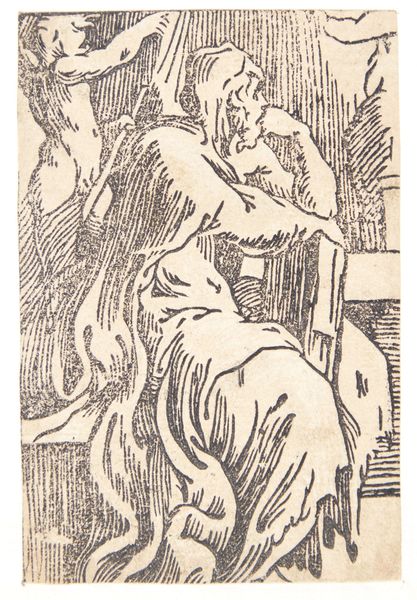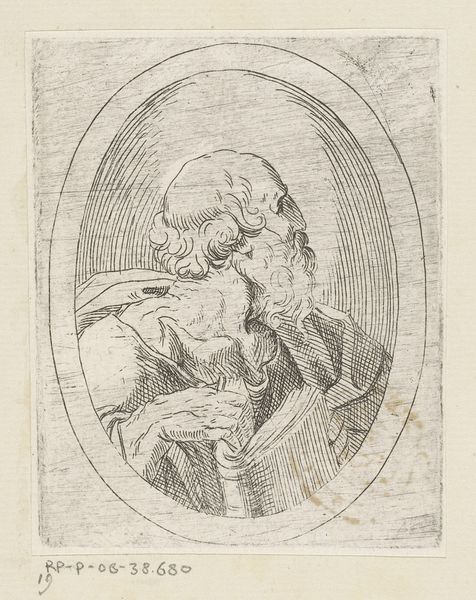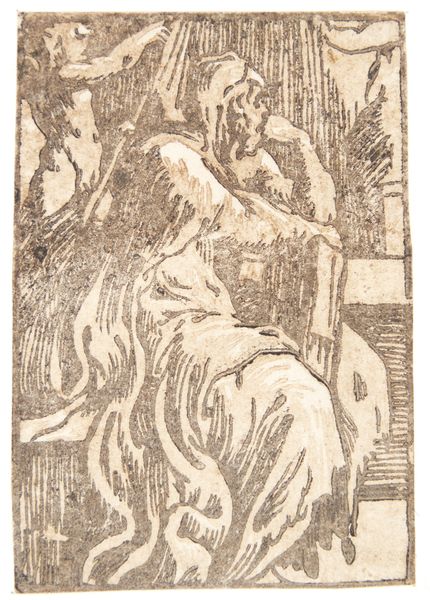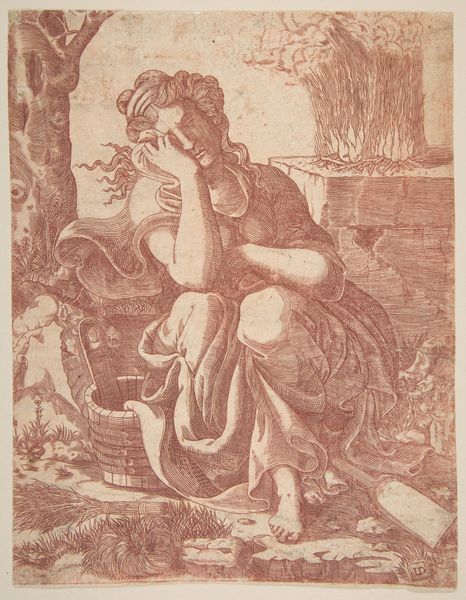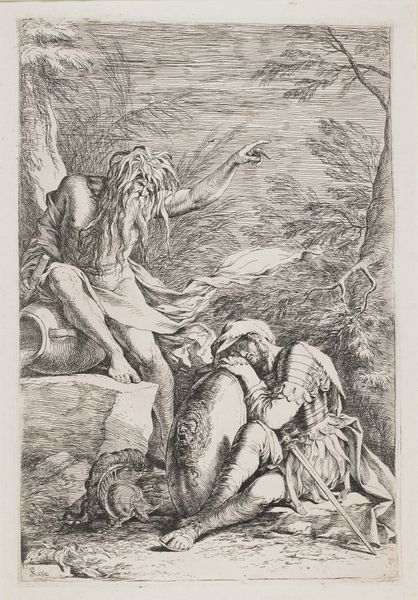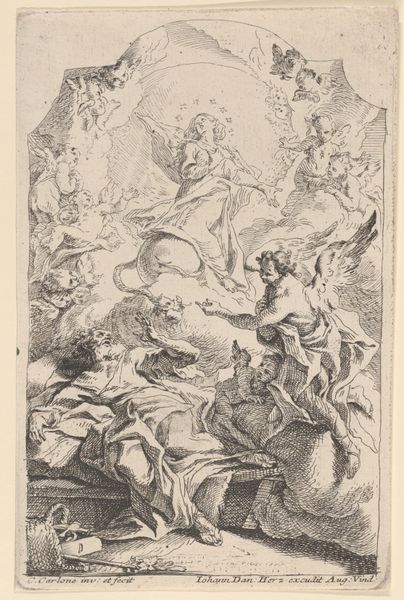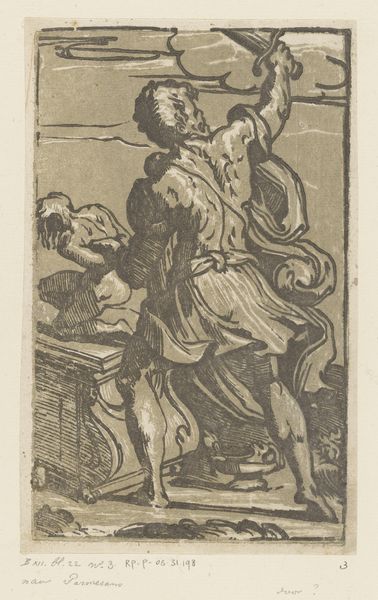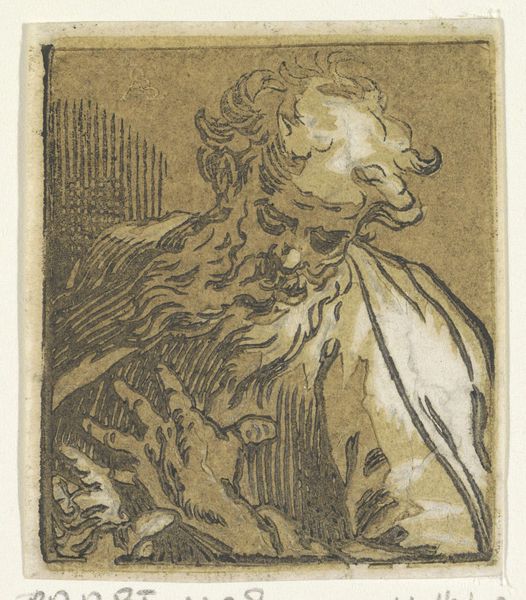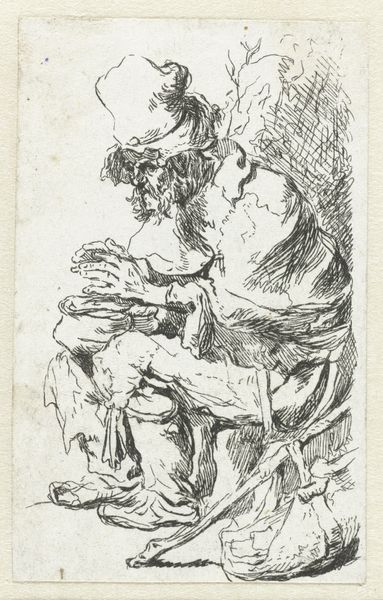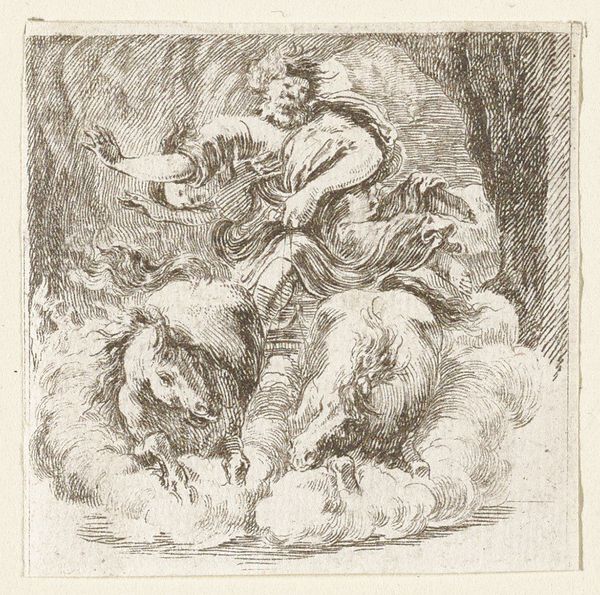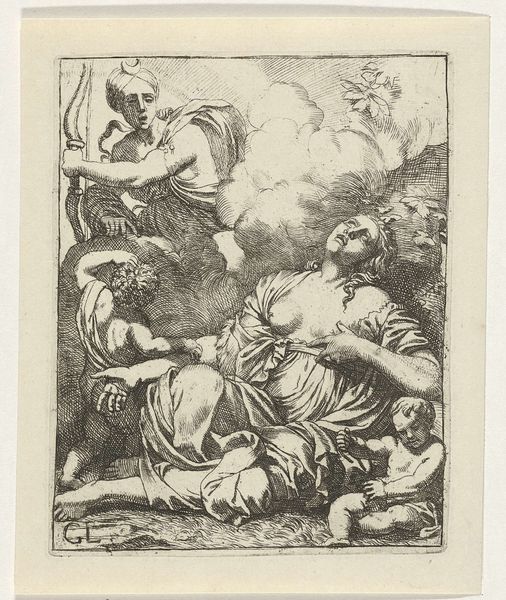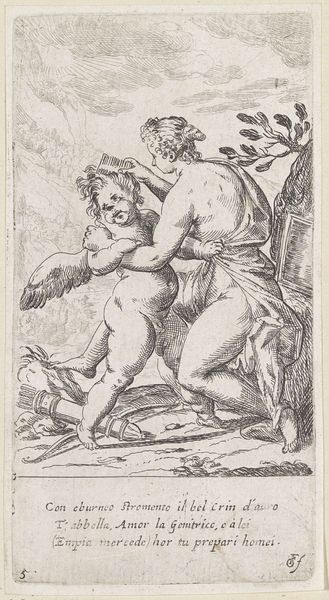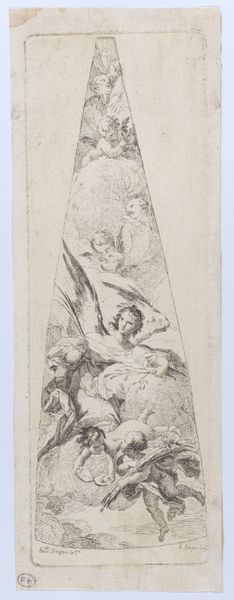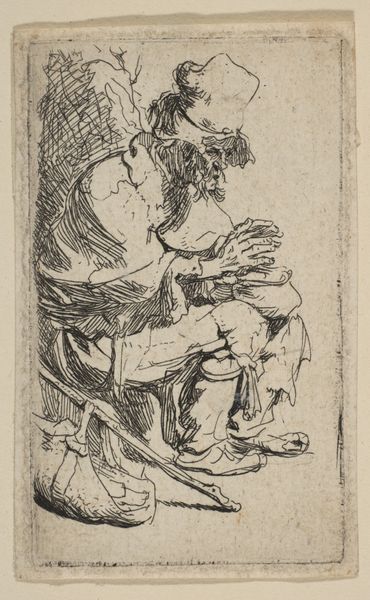
print, etching
#
portrait
#
baroque
# print
#
etching
#
linocut print
Dimensions: height 65 mm, width 48 mm
Copyright: Rijks Museum: Open Domain
Curator: Welcome to the Rijksmuseum. We are now standing before “Madonna met kind”, dating from between 1618 and 1655, by Cornelis Schut. This Baroque piece is a print, specifically an etching. Editor: My immediate reaction is to the intimacy conveyed despite the somewhat harsh lines of the etching. It’s striking, isn't it? The diagonal composition really focuses your eye on the connection between mother and child. Curator: Absolutely. And let’s consider the materials here. An etching of this scale implies a certain accessibility; prints allowed for wider dissemination of religious imagery amongst a growing mercantile class, for instance. Think about the labor involved in creating the printing plate, replicating this image for devotional purposes. Editor: A very important point, indeed. From a purely formal perspective, look at how Schut uses the density of lines to create areas of shadow and light. It adds incredible depth and volume, making the figures almost sculptural. Curator: I would emphasize that it's essential to remember the broader social context that framed this imagery. It's not only visual. How the labour practices reflect broader ideas of piety and craftsmanship within the Counter-Reformation artistic sphere. Editor: I agree it's complex. What strikes me is how such a simple medium as etching, the simple cross hatching gives such power in a formalist setting when discussing the ideas of motherhood within 17th Century society. It's incredibly powerful. Curator: Precisely. It bridges the divine with the earthly, addressing labor of motherhood by drawing it. Editor: A great insight that reveals much how context meets the work and what it says about society and the creator behind the image.
Comments
No comments
Be the first to comment and join the conversation on the ultimate creative platform.
